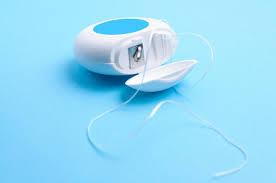Oral health is essential for our overall wellbeing. Brushing your teeth twice a day is an essential step to maintaining healthy teeth, but it’s not enough. Flossing is a crucial part of oral care that often gets overlooked. In this blog, we’ll explore the importance of flossing and how it can contribute to healthy teeth and gums.
What is Flossing? Flossing is the act of using a thin, waxed string to remove food particles and plaque from between the teeth and along the gum line. It’s an essential step in oral hygiene that helps prevent tooth decay, gum disease, and bad breath.
Why is Flossing Important?
- Prevents Tooth Decay: Brushing alone cannot remove all the food particles and plaque that build up between the teeth. If left unchecked, this buildup can lead to tooth decay and cavities. Flossing helps to remove these particles and prevents them from causing damage to the teeth.
- Prevents Gum Disease: Gum disease is a common oral health problem that can lead to tooth loss if left untreated. Plaque buildup along the gum line can cause inflammation and infection of the gums. Flossing removes plaque from these hard-to-reach areas, reducing the risk of gum disease.
- Improves Bad Breath: Bad breath, also known as halitosis, can be caused by the buildup of bacteria in the mouth. Flossing removes food particles and plaque from between the teeth, reducing the amount of bacteria in the mouth and improving breath odor.
- Saves Money: Regular flossing can prevent dental problems that may require expensive treatments like fillings, root canals, or gum surgery. By investing a few minutes each day in flossing, you can save money in the long run by avoiding these costly procedures.
How to Floss Correctly:
- Start with a length of floss about 18 inches long.
- Wind the floss around your fingers, leaving a small section to work with.
- Gently guide the floss between your teeth, using a back-and-forth motion.
- Curve the floss around the base of each tooth, making sure to go below the gum line.
- Use a clean section of floss for each tooth to prevent the spread of bacteria.
Conclusion: Flossing is an essential part of oral hygiene that should not be overlooked. It helps prevent tooth decay, gum disease, bad breath, and can save you money in the long run. Incorporate flossing into your daily oral care routine and remember to consult our family dentist in Shoreline, WA for personalized care to fit your needs.

